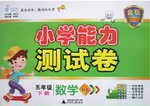题目内容
It is Saturday afternoon.You and your friends are planning to go to the movies and then spend the night together. Just as you start to get ready, your dad reminds you it is your aunt's birthday and the whole family is going out to dinner to celebrate.How can this possibly end without a huge argument?
One of the greatest sources of tension(紧张情绪)between teenagers and their families is the struggle to balance personal desires with family expectations.As you are getting older,you are becoming more independent and more interested in being with your friends.
However,at the same time,your family is trying to figure out how to deal with these changes. While you once spent most of your free time with your family,you are now often absent from home.Parents may get their feelings hurt.Or they might feel that they are losing control of their family during this period.You might feel angry that so many family demands are placed on you.
There are a few things you can try to make it a little easier to ease(缓解)the tension.
* Make your plans in advance.Ask your parents if there is anything else planned at that time.
* When something with your friends interferes(干扰;冲突)with a family event,try to figure out if there is any way you can do both.
* Suggest something you would really like to do with your family.Sometimes parents feel better just knowing their teenager wants to spend time with them.
Some of the time you won’t be happy with the outcome(结果).You might either have to disappoint your parents or have to miss out being with your friends.However,if you show consideration(体谅)for the feelings of both your family and your friends,you can solve the problem in a tender way.
- 1.
The purpose of the first paragraph is to _________.
- A.show a disagreement of views
- B.serve as a description of teenager trouble
- C.serve as an introduction to the discussion
- D.show the popularity of teenager problem
- A.
- 2.
The tension between teenagers and their families is caused by the fact that____________.
- A.teenagers don’t like to take family demands
- B.parents want to keep their family under control
- C.parents feel unhappy that their children make so many friends
- D.both parents and teenagers don’t pay attention to each other’s feeling much
- A.
- 3.
Which of the following is NOT the advice given in the passage?
- A.Don’t feel angry if your parents ask you to do something.
- B.Try to think of ways to balance family event with friend event.
- C.Tell your parents before you decide to spend time with your friends.
- D.Advise your parents to do something that you are interested in with you.
- A.
- 4.
What’s the purpose of the passage?- A.To inform us of parent and teenager tension.
- B.To tell us about a common teenager problem.
- C.To persuade parents to show consideration for teenagers.
- D.To advise teenagers how to deal with their tension with their family.
- A.
CDAD

练习册系列答案
 期末100分闯关海淀考王系列答案
期末100分闯关海淀考王系列答案 小学能力测试卷系列答案
小学能力测试卷系列答案
相关题目